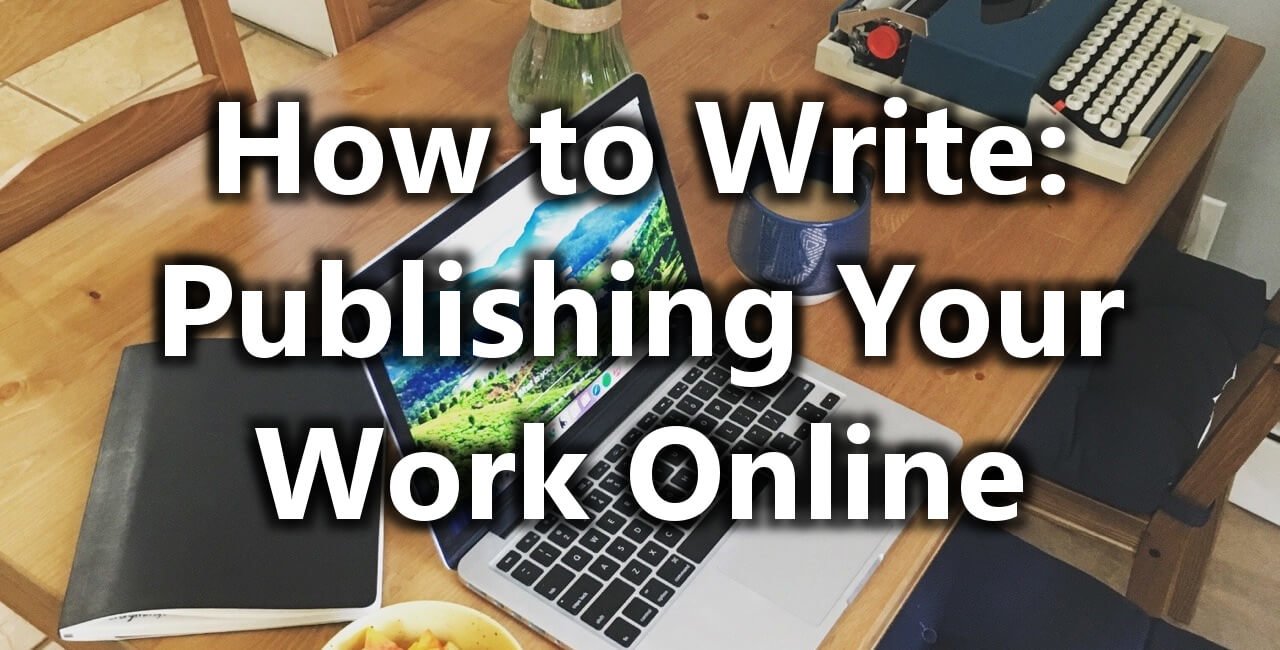You’ve written a book, and it’s the best thing ever! So, now you want people to read it. How do you get it to them?
In our current publishing world, there’s three major options. You can contact a traditional big publisher, who – if everything goes well – will buy the rights to your book, edit it, put a cover on it, market it and send you money when it sells. You can contact a smaller independent (indie) press, who have the flexibility to take chances on unusual work, and who are more likely to involve you in the details of publishing – but who don’t have the same marketing reach as the big publishers, and won’t sell quite as many as the big traditionals. Avoid anyone who asks you for money to publish (known as ‘vanity press’) with the promise of royalties in the future – it’s very likely that you’ll pay a lot and not get nearly as much back. A publisher should always cover things like editing and cover art for you, even if that means your royalty share is smaller.
Or you can self-publish. This means you’re the one responsible for everything – editing, cover art, formatting, releasing, marketing, selling – so you’re putting the book out under your name, and you keep the profits from it. You can sub some of the work out (eg. hire a proofreader, purchase cover-art) but it’s down to you to sell your book to the world. And the great thing is that there are plenty of ways to do that!
In this article, we’re going to briefly cover some alternative methods of getting your writing out there to your readers. While we tend to think of self-publishing as being a hard copy or ebook version of a book, that’s not the only way you can publish your work: the Internet has a wide variety of ways to attract attention and readers. The downside of many of these methods is that many publishers consider items on the internet to be ‘published’ and therefore may not want to republish in a more traditional format. However, that’s not necessarily a barrier to later self-publishing in print or ebook format, or even getting a traditional publishing deal if you get popular enough!
Wattpad
Wattpad is a writing showcase forum. Contributors post section, chapters or whole stories in plain text format, and other people can read, comment and follow along. There’s a large fanfiction community, along with writing contests and clubs.
The downside of Wattpad is that it’s free; you won’t get paid anything by your readers. The upside is that it’s free, and open to anyone! Wattpad is also a great place to trial your writing, and get feedback as you go; you may collect loyal readers who then want ebooks, or attract the attention of traditional publishers or agents (Wattpad even has an FAQ on what to do if you do get noticed!)
Writing Forums
There are a lot of writing forums out there – a quick search for “writers forum” will give you lots! A good starting point is Reddit’s r/writing. It’s a mix of advice, writer’s chat and general hangout; there’s often book recommendations, writing critique, and several well-known authors often drop in to chat or comment. Becoming part of a writing forum is often more helpful in terms of community than specifically to your writing, but being able to post chapters or the entirety of your writing means fellow-authors can read it, and you may find you end up with a fanbase who will then support your ongoing writing.
Your Own Blog or Website
Probably the most famous example of this is Andy Weir, author of The Martian. He started off posting chapters on his personal blog: his fans liked it, and he got more readers. They started asking for an e-reader copy, so Weir put the chapters together and put them onto Kindle Direct Publishing. Then it topped the bestseller lists, and he got a publishing and movie deal in the same week. We can dream, right?
Putting your work onto your blog is a good way to showcase yourself as an author, as well as bring more readers in. A blog or website is a useful tool for authors as well, as it tells people who you are and directs them to your work. There’s a lot of options for free websites – wordpress.org is a good place to start for something easy.
Other Formats
It’s worth considering, when you’re thinking about self-publishing, what other formats you could publish in. Most authors tend to focus on novels because that is traditionally what sells, but that doesn’t mean that other writing is not worth the time.
Could you write short stories or novellas, and offer them at discounted prices (or free) as an ebook or pdf? Free shorts are often a good draw in for readers, as they offer a chance to discover the author’s writing without having to spend much money.
How about a serial story? Webcomics have successfully managed this format, with many updating every couple of days or week, and maintaining their readership. Serial stories were incredibly popular in Victorian England (Dickens originally wrote his stories to be serialised in a newspaper) and with the availability of websites, rss feeds and email newsletters, serialised stories are starting to come back into fashion.
How about Podcasts? Welcome To Night Vale is a good example of a podcasted story that has become very successful; could you ‘publish’ your story as an audiobook, podcast or even a YouTube series?






